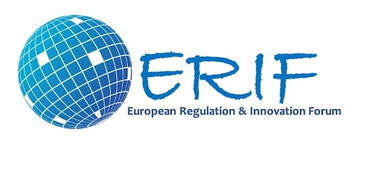We organise our work and activities around three main interconnected and mutually reinforcing ‘pillars’:
These topics are debated and investigated within dedicated ERIF Task Forces open to ERIF members and invited experts.
- Better Regulation – this encompasses what is typically understood and addressed by the EU institutions and governments in OECD countries when they seek to deliver high-quality regulatory governance – the sustained implementation of Good Regulatory Practices such as impact assessment, public consultation, ex post evaluation and regulatory oversight. It includes the promotion of due process and quality standard governing the ‘administrative State’ at the EU level, including through the adoption of a comprehensive EU Law of Administrative Procedures, as well as a mutually beneficial, constructive and science based trans-Atlantic regulatory dialogue This pillar constitutes the bulk of the work carried out by the ERIF since its inception more than two decades ago.
- Science in Decision-making – this refers specifically to the way in which regulators procure, collect, review and use scientific evidence to underpin public risk management decisions. It covers, in particular, the way in which the EU institutions and bodies ensure that the regulatory science they rely upon is the best available (‘excellence’) and objective (‘impartiality’) to avoid regulatory failure.
- Regulation and Innovation – this focuses on the interface between regulation and innovation. It considers ways to implement the Innovation Principle, looking at procedural and organisational arrangements; methodologies; as well as the bureaucratic and regulatory culture. It examines regulatory strategies for promoting new technologies. It highlights the importance of enabling “Framework Conditions”, including regulation, for promoting investment in innovation. The pillar addresses both radical and incremental innovation in products, services, and operating methods, recognising the complexities of modern, mature economies.
These topics are debated and investigated within dedicated ERIF Task Forces open to ERIF members and invited experts.
